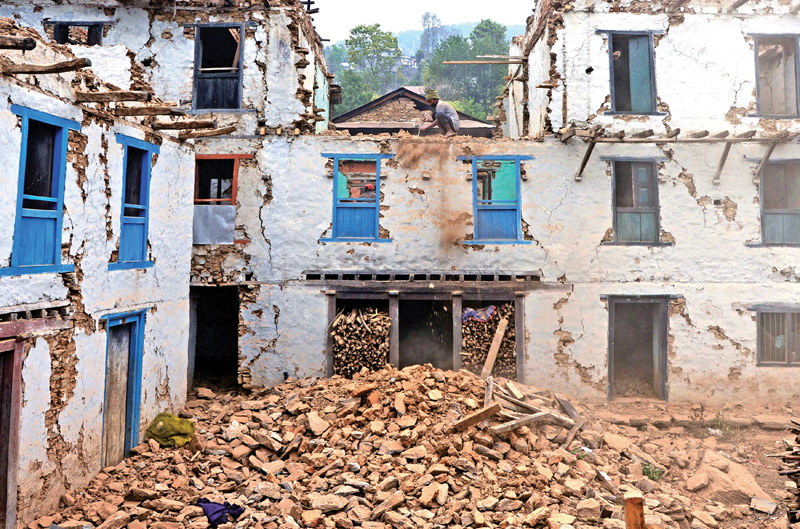Insurance sector fails to grow in desired manner despite quakes
Kathmandu, April 23
If official statistics are anything to go by, businesses of non-life insurance companies have failed to grow in a desired manner since the earthquakes of last April and May.
Non-life insurers were expecting a surge in demand for their products following the devastating quakes, as people appeared to have finally understood the importance of insurance schemes. But, it appears, people have short memory.
This has been reflected through revenue generated by non-life insurance companies through sales of insurance products, which stood at Rs 6.45 billion in the first six months of the current fiscal year, as against Rs 5.38 billion in the same period last fiscal year.
READ ALSO
Data provided by the Insurance Board (IB) show premium collection growth of mere 20 per cent, which is identical to that of previous years. “We were expecting the business to pick up rapidly after the quakes because many people had started showing keen interest in purchasing insurance products,” Dip Prakash Panday, CEO of Shikhar Insurance, told The Himalayan Times. “But factors such as size of the economy, blockade and lack of consumer confidence in the insurance sector worked as deterrents.”
Nepal’s economy has been expanding at a slow pace for over a decade — a signal that businesses are growing at a moderate rate. Slow business growth automatically affects insurance sector because resources are diverted to other priority areas.
Despite this, many had started putting insurance in their priority list to provide protection to their assets and properties against various risks. “But delay in post-quake claim settlement may have hit the confidence of many,” Panday said.
After the earthquake of April 25, policyholders had rushed to their insurers to calculate losses caused to their properties and demand compensation. But insurance companies took months to settle claims — although the law requires them to wrap up this process within 50 days of receiving the complaint.
“This, in a way, tarnished the reputation of the insurance industry. So, many started thinking twice about purchasing insurance products because they were not sure whether they’d be paid on time if their properties sustained damage,” Panday said.
Despite this sentiment, demand for fire insurance product, which covers damages caused by earthquakes, went up by 25.35 per cent in the first six months of the current fiscal year.
In between mid-July and mid-January of this fiscal year, non-life insurance companies generated premium of Rs 1.25 billion through sales of fire insurance products.
With this, the share of fire insurance product in total premium collection has now jumped to 24.30 per cent from 20 per cent a year ago.
The fire insurance product’s contribution to total revenue also went up because of deceleration in growth of motor insurance sector.
Non-life insurance companies generated Rs 2.64 billion in premium from sales of motor insurance products in the first six months of the current fiscal year, marking a growth of 14.17 per cent.
“One of the reasons for lower growth in motor insurance sector is blockade,” said Panday.
Right after the promulgation of the new constitution in September, various parties and groups based in the Tarai intensified protests demanding certain changes in the new charter. The protests, which snowballed into border blockade, reduced the flow of petroleum products, raw materials and other goods into the country, forcing industries to cut down production and consumers to lower consumption.
“This had a great impact on our business,” said Panday, whose company’s revenue growth — excluding income from aviation sector — fell to 25 per cent right after the blockade from around 77 per cent prior to the blockade.
“Since normalcy has returned in the supply situation, business has once again started to pick up and revenue growth now stands at around 47 per cent.”






